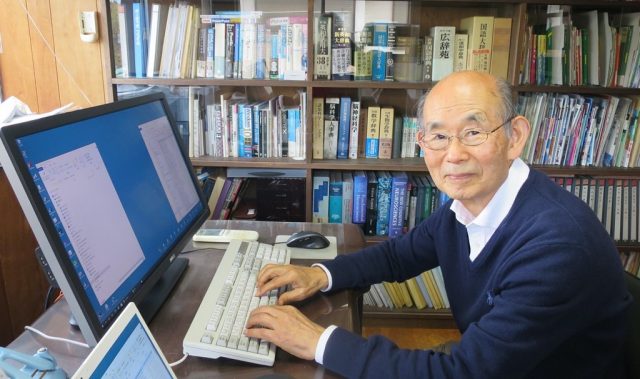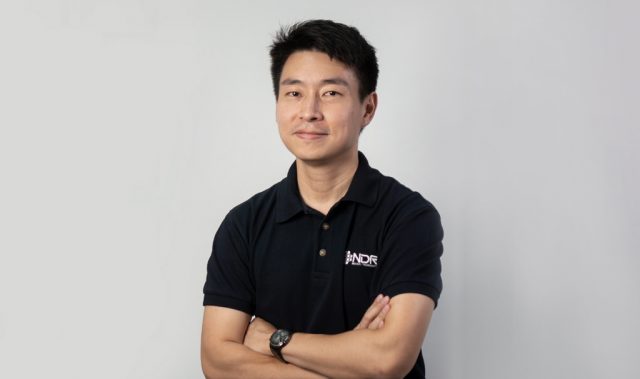
AsianScientist (Feb. 27, 2018) – Besides a billion monthly active users on its WeChat messenger platform, tech giant Tencent Holding’s ubiquity in China extends from social media to content, music, gaming and even cloud services.
All that could change in an instant in the era of artificial intelligence (AI), as competitors Baidu and Alibaba jostle for internet dominance by integrating AI into their products and platforms.
To stay ahead of the curve, Tencent launched in April 2016 an AI lab, which aims to ‘Make AI everywhere.’ In March 2017, it appointed machine-learning expert Dr. Zhang Tong as the lab’s executive director. The former professor from Rutgers University was most recently head of Baidu’s big data lab, and had received a PhD degree in computer science from Stanford University.
At the Tencent AI Lab, Zhang leads a team of 70 AI scientists on research and development in machine learning, natural language processing, computer vision and speech recognition. He also works with 300 engineers to incorporate AI into the company’s products and services. For Tencent’s social networks QQ and WeChat, for example, Zhang’s team is enabling bots to communicate intelligently with users via natural language.
At the sidelines of the EmTech Asia 2018 conference in Singapore on 30 January 2018, Asian Scientist Magazine had a chat with Zhang about his thoughts on some of the hardest problems facing AI researchers today, and how Tencent plans on solving them.
What is Tencent’s vision of how society will use and interact with AI? What is your vision for Tencent’s AI program?
The company’s mission is to help people and to develop high-quality products. To create these products, we [at the Tencent AI Lab] are making use of AI.
There are some emerging trends of how people are using AI these days. One particular trend is to connect online-to-offline (O2O). So Tencent is developing many apps that can help bring consumers and businesses together in a blended model of online and offline commerce.
Another aspect that we are interested in at Tencent is the cloud, working with traditional industries to empower them to do things they couldn’t do before.
What would you say are some of the most difficult problems facing the field of AI today?
I can tell you about my own research interest in this space. I think that one area where there will need to be a lot of progress is in natural language.
We are probably 15 years away from natural speech by AI. There are a lot of applications now, but I think we need 15 more years to get the engineering right. Speech recognition by AI, in particular, is not sufficiently mature. There are a lot of open questions, and it may take many, many years to get to where it needs to be. So natural language is a very big challenge and it is very useful for the next generation of interfaces.
Many people and companies are putting a lot of effort into [natural language processing]. If you remember, there’s one such robot in the news, Sophia (of Hanson Robotics). Sophia has Saudi citizenship, and looks very human when it talks.
What was the motivation for Tencent to develop Jueyi, a Go-playing AI program?
Many engineers [at Tencent] are very interested in the Chinese game of Go. Go is complex, and people think that it is the summit of human intelligence [to play the game well].
I think that people are very interested to see how far we can push [Jueyi] to solve this game. In China, we want to use [Jueyi] as a research bed to explore ideas and push forward [AI] technology. We are still working on [Jueyi] and it is far from solved at this point.
[Jueyi] is not just about the computation; it is really about trying to, research-wise, make progress. Along the way, we invent new ideas and methods that can be used in other contexts.
What kind of AI platforms is Tencent building for third-party developers?
Right now, we are trying different things. The lab is less than two years old, so we are still building things. There are application programming interfaces (APIs); some of which are already available, such as a face recognition engine. We are developing a few more for natural language understanding.
Could you share with us something that you’re very excited about that is taking place in your lab?
One project that I am pretty excited about, that I think is very long-term and that we are starting to work on, is to try to use machine learning to study behavior in the virtual world, and at some point in the real world.
We are trying to align language with, for example, computer vision, speech, action and so on. With those, we will try to move beyond games. Games are about decision-making, but they are very simulated.
———
Copyright: Asian Scientist Magazine; Photo: EmTech Asia 2018
Disclaimer: This article does not necessarily reflect the views of AsianScientist or its staff.












